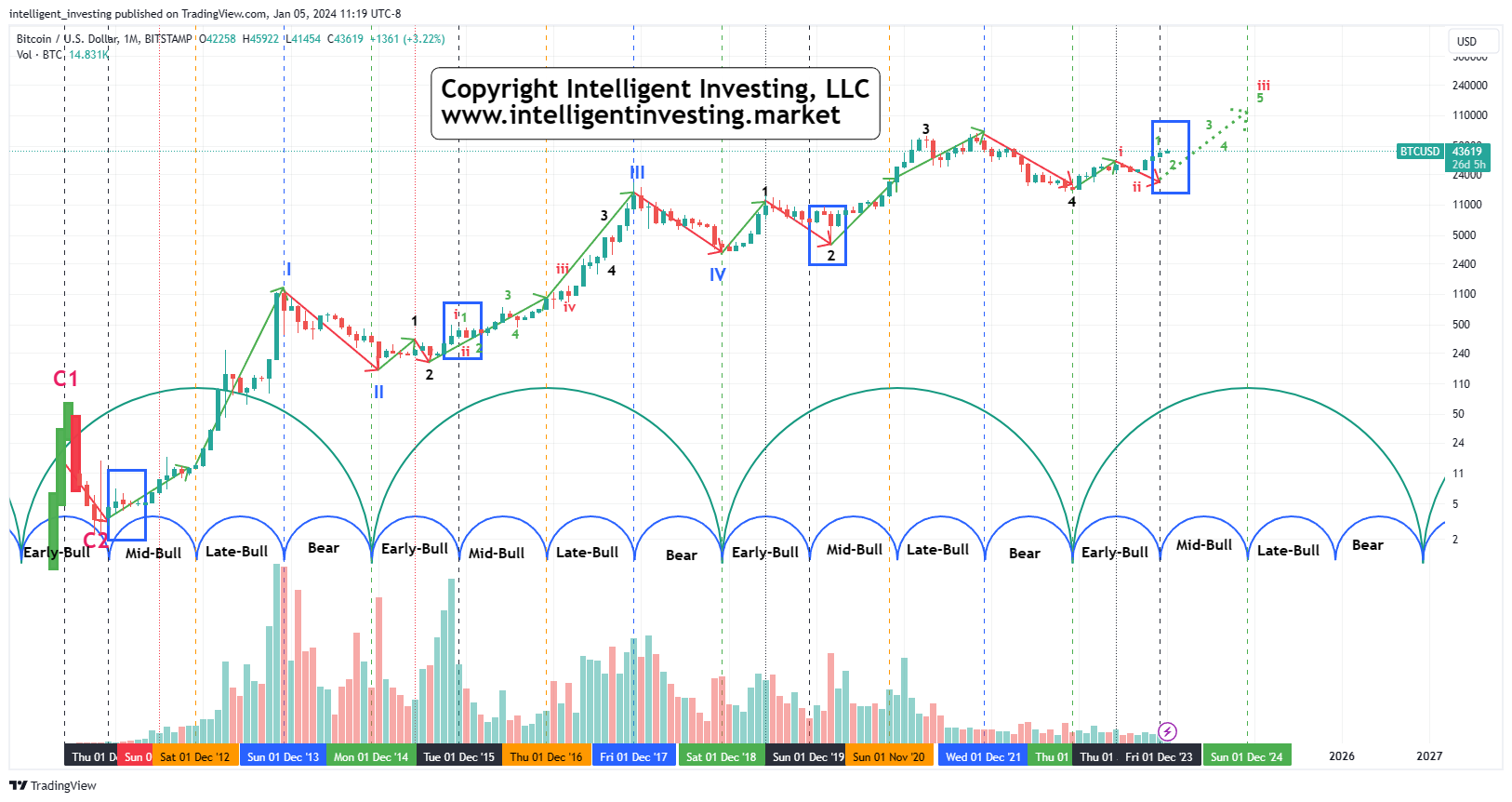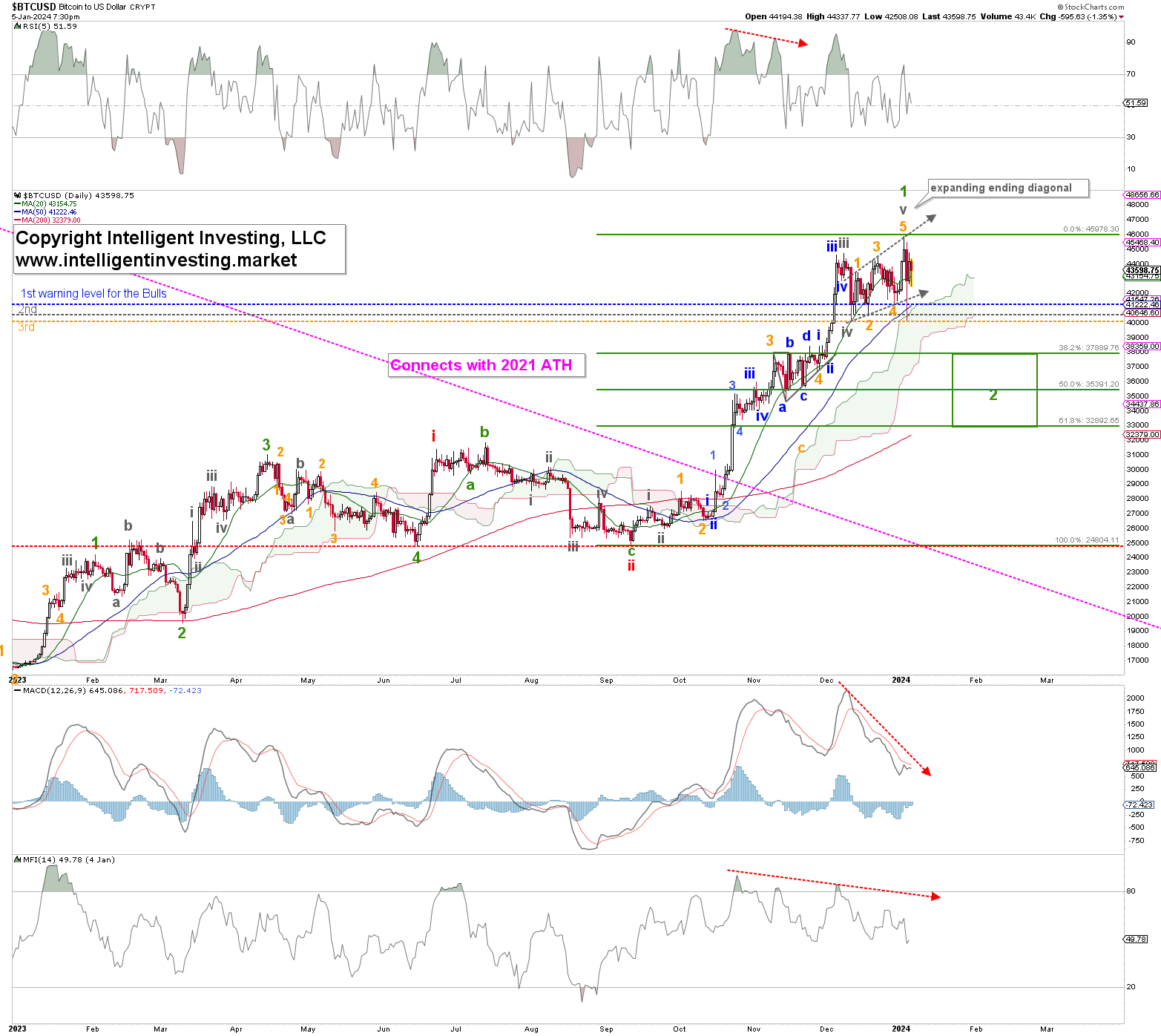Eos Energy stock falls after Fuzzy Panda issues short report
Regular readers know we primarily use the Elliott Wave Principle (EWP), to make prognostications on where Bitcoin (BTC) should ideally top and bottom. Besides, we track the 4-year cycle theory proposed by @CryptoCon_ to anticipate when these highs and lows should happen.
Namely, when we track financial assets like BTC, we use objective standards, i.e., the standard Fibonacci-based impulse pattern, which applies most of the time. But, since the financial markets “do not owe us anything,” as they say, sometimes they move outside those standards. Therefore, we cannot foresee all moves and all highs and lows. However, just because the standard Fibonacci-based pattern is not followed doesn’t mean the EWP doesn’t work—quite the contrary. Financial markets - including Bitcoin - are complex systems like the weather and can never always be correctly forecasted. But the list of our articles shows we have mostly been on track. Thus, applying the time-tested objective standards always provides appropriate risk management, the most critical aspect of trading.
Moreover, although “past performance is no guarantee for future results,” as is always disclaimed, when we learned Bitcoin has progressed since its inception in what appears to be a regular pattern, see here and Figure 1 below, we must assume that pattern will continue until proven otherwise.
Figure 1: The Monthly chart of BTC since 2011 with its four-year cycles

Thus, based on these cycles, BTC moved late November/early December from the Early-Bull phase into its Mid-Bull phase, which will end in late 2024. The blue boxes in Figure 1 above show the previous three occasions. What we find is that each time this phase transition happened, BTC struggled for a few months: topped around January +/-1 month, bottomed around February +/- 1 month with an average loss of around 20 +/- 5%, and then rallied into July +/- 1 month. Thus, we should expect Q1 to be “soft”, and Q2 to be strong. From an EWP perspective, our primary expectation is for BTC to be in the green W-2 of red W-iii, which matches the four-year cycles. See Figure 2 below.
Figure 2: The daily chart of BTC with detailed EWP count and several technical indicators

Once this green W-2 pullback is complete, BTC should launch itself into green W-3 of red W-iii. See Figure 1. For those new to the EWP, please know that markets are fractal, and 3rd waves, in this case, red W-iii, will subdivide into five smaller waves: green W-1 through 5. At this point, BTC is only at the W-1, 2, 3 stage. Thus, the notion that Q2 should be strong matches as well.
We know From the EWP that waves four and five come after wave three. Therefore, the green W-3 should top out in the summer of 2024. At the end of Q2, like the Mid-Bull phase in 2016. The third quarter should be reserved for the (green) W-4, followed by the (green) W-5 to possibly new all-time highs by late 2024 or early 2025. Note that in 2012 and 2016, the Mid-Bull phase did not generate a new ATH, but in 2020, it did. Thus, we expect 2024 to be a close call. Based on the EWP, a 3rd wave often targets the 1.618x Fibonacci extension of the prior W-1, measured from the W-2 low. A rough estimate shows green W-1 was about $20K ($25->45K). The green W-3 should be $20K x 1.618 = $32.4K. Assuming green W-2 bottoms out at around $34.6K, we can calculate that W-3 could reach $34.6K + $32.4K = $67K. Once Q3 ends, and in addition to that, the green W-4, ideally around $55K, the green W-5 kicks in. It then depends on whether there’s enough time left in Q4 for this wave to surpass $69K. But it will be a cliffhanger.
Thus, as stated in many prior articles:
“We have been Bullish on BTC for quite some time … However, our Bullish scenario is entirely invalidated below $25K. Only when that happens will we change our overall, longer-term Bullish POV, which BTC is proving more correct for each update we provide in that, based on BTC’s past cycles, made up of four more minor phases, it is currently in the “Mid Bull” phase and thus close to the next Bull run, which can target $100-200+K by the end of 2025.”
